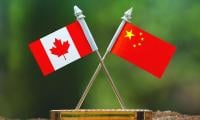Tough decisions
Governments all over the world routinely make the following announcements to prepare citizens for difficult days: “We are taking tough decisions; these are decisions which are in the right direction; they will set the economy on a sustainable track.”
Leaders further add that there is a political cost to these decisions, and yet in the larger national interest, they are willing to bear it. All sounds quite noble indeed.
It is also true that state capacities, election cycles, exogenous circumstances and technocratic weakness tend to drive the quality of decision-making. In the developing world, colonial legacies and a perpetual sense of inferiority also tend to influence the decision-making process.
In a turbulent post-Covid world, stalked by high global debt, inflationary forces, technological upheavals and confrontation-prone superpowers – any one of them a fuse for the next crisis – meek decisions will mean very little for countries to transform their supply chains or their revenue authorities.
Pakistan, in a post-Covid world, needs an economy which is rapidly growing its way out of the deep red stains on public finances. Yet for Pakistan, our sense is that decisions are painfully rooted in expediency with little support of evidence-based research – a less desirable recipe indeed.
Let us put some context on decisions of expediency. We analysed some recent decisions: revising the petroleum levy to Rs30 per litre, withdrawing sales tax exemptions, repetitively making restructuring plans and writing reports on ill-functioning state-owned enterprises, implementing the full cost recovery pricing objectives for energy projects and passing inefficiency of the sectors to consumers. One can mention many such decisions which hardly qualify as tough decisions but are indeed painful in nature and at times necessary to stabilise the economy – they are more of a bandaid to an economy which needs surgical treatment.
Consider some tough decisions in a highly debated and emotive area – domestic resource mobilisation. Such an exercise can help understand that policymakers, for a long time, have been hesitant to make the seismic calls. Resultantly, the country has a narrow tax base, weaknesses in revenue administration, low taxpayer compliance on the back of high informality, and susceptibility to corruption.
The result is a harsh reality – Pakistan’s federal tax-to-GDP is at an abysmal low of 11 percent. This keeps the budget perpetually in a deficit – an uncomforting predicament indeed.
A tax-to-GDP ratio of 15 percent is now widely regarded as the minimum level required for sustainable development. Tough decisions are needed for a sweeping approach to break free from the ongoing practices in revenue administration. The tough decision is to recognise the prevalent picture and to make stakeholders understand it.
On the administrative side, a recent diagnostic assessment highlights the need for a structured risk compliance management, integration of data and a focussed medium-term strategy, one that is implementable. These are all big calls to make and will not be accomplished by small steps.
The decision that should be taken is to make the Federal Board of Revenue (FBR) an invisible organisation by digitalising tax administration for more efficient administration, less human intervention and reduced burden on taxpayers to leading to more voluntary compliance. This will require a change in the culture and mindset of the tax organisation. Many countries were able to drastically increase their income-taxpayers through this transition. South Africa, for example, increased its number of income-taxpayers from 2.6 million to 4.1 million in less than a decade. This is the transition Pakistan is looking for.
Another tough decision is to create reliable databases integrated with domestic third-party data as well as financial information exchanged automatically with other countries. Data exchanged must be used effectively to prioritise all enforcement measures based on risk analysis and prevent tax evasion and avoidance. The tough decision is to build immediately the capacity for data analytics by hiring professionals.
The needed resolve is to close the 50 percent tax gap – understood as the difference between what can be collected under the existing laws and what is being collected. Levying more withholding taxes is not a tough decision, using the data collected from withholding agents to identify non-filers and ensuring their compliance is the change that is needed.
Trying to broaden the tax base by providing amnesties or through allocating pre-assigned tax numbers to potential taxpayers is hardly a tough decision. What is needed is to: i) broaden the base through progressive taxation, taxation of land and property; ii) bring all incomes under the same head – be it agriculture, property, dividend or capital gain; and iii) broaden the base of consumption taxes to include digital and e-commerce activities. A tough decision is to harmonise GST across the federal and provincial levels, settle disagreements over tax base definition, crediting and multiple taxation, and build a workable intergovernmental fiscal framework.
Tough decisions are painfully required at the international level to proactively participate in international tax initiatives and conduct transfer pricing audits to prevent base erosion and profit shifting to ensure Pakistan gets its fair share of revenues. Let us move to mandated limits on budget deficits. Policy efforts should include coordination with fiscal, monetary and trade policies for overall macro-economic stability. I am cautiously optimistic that these suggestions can someday be implemented.
The sense is that decision-making is in need of an overhaul across the spectrum, from moving to impactful changes to making evidence-based decisions. A new thought process needs to set in. That is the change management which is required. The idea of putting this piece is to get a sense of what tough decisions can really mean in Pakistan’s context.
Vague statements of intent and non-binding targets of achievement – meant for media consumption – are unlikely to raise domestic revenues, create tax certainty and efficiency and make compliance convenient for individuals and businesses. Time is to be bold and aggressive. The requirement is to do more than less.
The writer is former adviser, Ministry of Finance. He tweets @KhaqanNajeeb and can be reached at: khaqanhnajeeb@gmail.com
-
 China Cuts Anti-dumping Duties On Canadian Oil Imports After Final Trade Decision
China Cuts Anti-dumping Duties On Canadian Oil Imports After Final Trade Decision -
 Prince Harry, Meghan Markle Make Major Change To Strategy To Please Royal Family
Prince Harry, Meghan Markle Make Major Change To Strategy To Please Royal Family -
 Chester Bennington’s Mental Health Story And Lasting Legacy
Chester Bennington’s Mental Health Story And Lasting Legacy -
 John Cusack Gears Up To Give Fans Exciting Surprise On Late-night Television
John Cusack Gears Up To Give Fans Exciting Surprise On Late-night Television -
 Yerin Ha Opens Up About Shocking Diagnosis Post ‘Bridgerton’ Season 4
Yerin Ha Opens Up About Shocking Diagnosis Post ‘Bridgerton’ Season 4 -
 Meghan Markle, Harry Leave King Charles, Prince William Furious With Latest Move
Meghan Markle, Harry Leave King Charles, Prince William Furious With Latest Move -
 NASA Announces New Artemis Moon Mission Aimed At Expanding Astronauts’ Exploration Efforts
NASA Announces New Artemis Moon Mission Aimed At Expanding Astronauts’ Exploration Efforts -
 Everything To Know About Justin Bieber's Facial Paralysis
Everything To Know About Justin Bieber's Facial Paralysis -
 Morgan Stanley Predicts AI To Replace Tasks Not Workers
Morgan Stanley Predicts AI To Replace Tasks Not Workers -
 Anthropic Dario Amodei Calls White House Response ‘retaliatory’ In AI Safety Dispute
Anthropic Dario Amodei Calls White House Response ‘retaliatory’ In AI Safety Dispute -
 Tia Mowry Breaks Silence On Angelina Jolie Asking 'unbelievably' Personal Question: 'Wilder'
Tia Mowry Breaks Silence On Angelina Jolie Asking 'unbelievably' Personal Question: 'Wilder' -
 Savannah Guthrie Speculations 'sadly' Coming True About Mother Nancy
Savannah Guthrie Speculations 'sadly' Coming True About Mother Nancy -
 Trump Administration Warns Of Slow Payouts For Tariff Refunds Amid Intensifying Trade Disputes
Trump Administration Warns Of Slow Payouts For Tariff Refunds Amid Intensifying Trade Disputes -
 Princess Beatrice 'far From Comfortable' After Father Andrew's Arrest
Princess Beatrice 'far From Comfortable' After Father Andrew's Arrest -
 Sarah Ferguson’s Dual Cancer Journey
Sarah Ferguson’s Dual Cancer Journey -
 GTA 6 Security: Rockstar Blocks Leaks Ahead Of Launch
GTA 6 Security: Rockstar Blocks Leaks Ahead Of Launch



